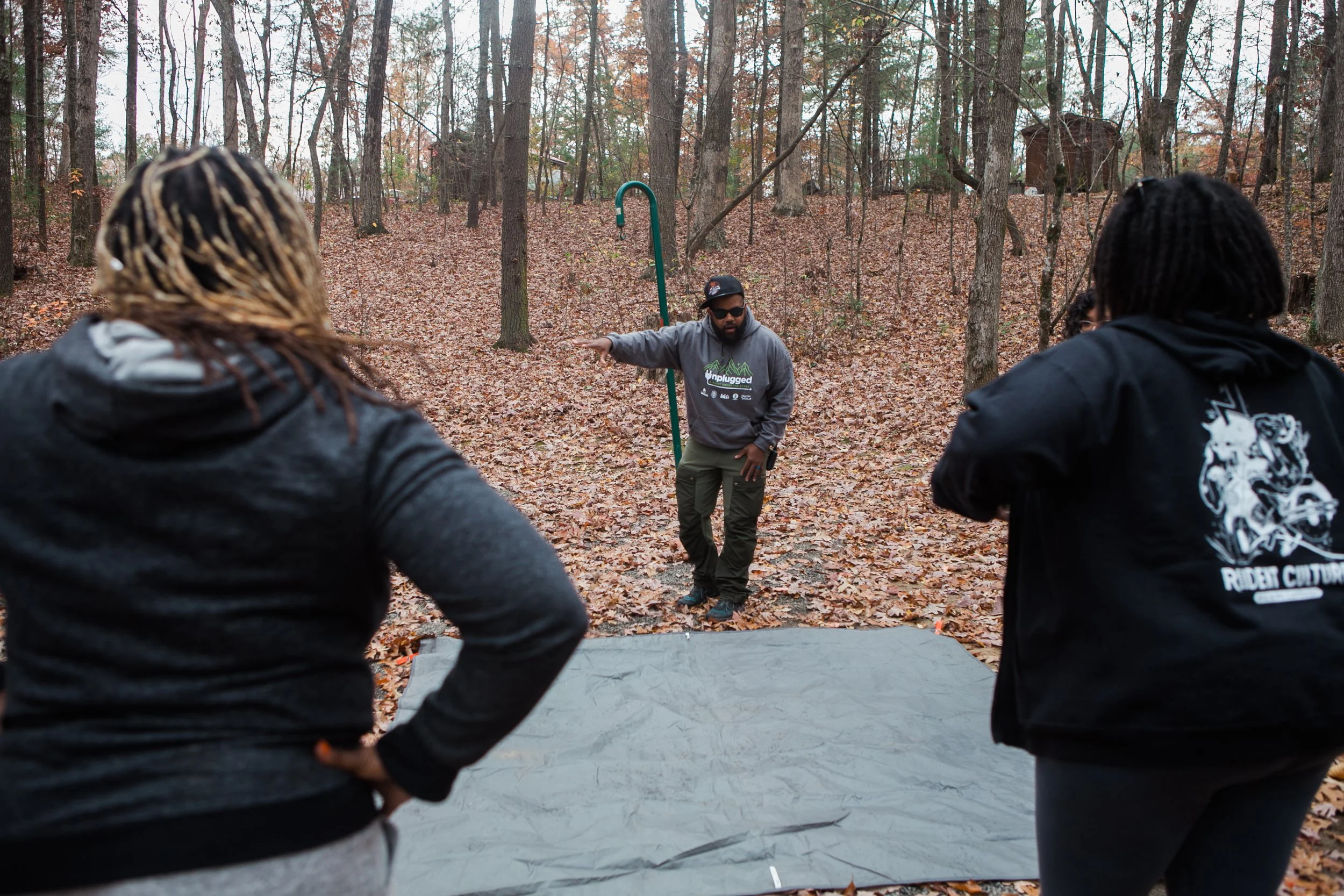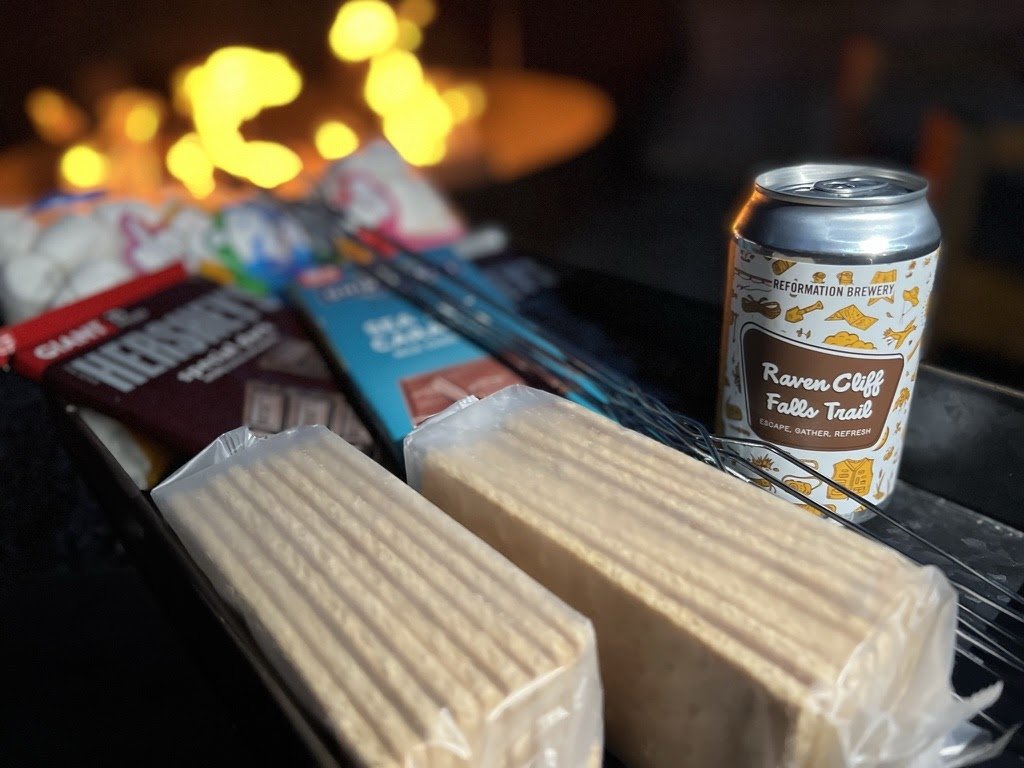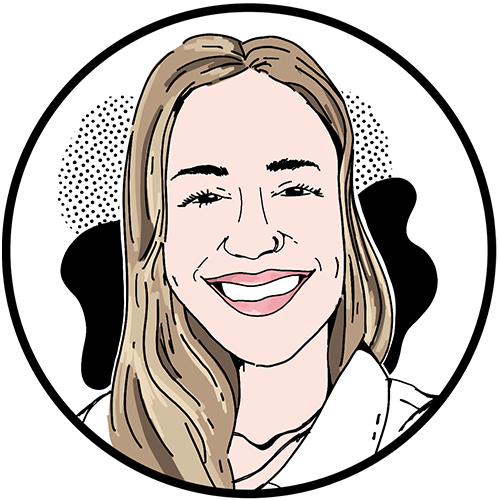The car was packed to the brim. Fuller than when we ventured from Atlanta to Savannah for Christmas, with our suitcases, the dog and all his life essentials, even our electric grill. This time, my husband and I were only leaving for an overnight camping trip, but we still found ourselves shoving odds and ends into every crevice of my compact SUV: sleeping bags; picnic baskets; backpacks; God knows what else.
Instead of Savannah, we were headed in the opposite direction, to Morganton, Georgia. We planned to spend the night at a local state park with 14 other campers. If our overpacking indicated anything, it was that we were more than a little nervous about the experience.
I have gravitated to the outdoors all my life, but my fondness for nature grew significantly when I took up running in 2013. I started memorizing the weekly weather forecasts on Mondays, and tracking the incremental changes in the time the sun rose and set throughout the year. I rarely passed up an opportunity to spend time outside, whether in my backyard gardening, hiking a local trail, or taking my dog out for morning walks. But for a long time, I avoided camping.
On the surface, I should have loved it. Camping offered a chance to disconnect from the world, to get away from the city and see the stars. When I thought of camping, I pictured s’mores and hikes through the woods, cooking over campfires, and having deep conversations about life—all while letting the hours tick by, tracking time only by the setting sun and our rumbling bellies.
But for all that camping promised, I still felt a tingling pang of fear whenever I thought about spending the night out in nature. What if something went wrong? I couldn’t help but think of Ahmaud Arbery, who was murdered by several white men while out on a run. Or Christian Cooper, who was bird-watching in New York City’s Central Park when a white woman, Amy Cooper (no relation), called the police on him. Then, there was the Black family in Sacramento who were victims of a hate crime while camping.
When I thought of camping in the woods, then, it was more than just a fear of bears that dampened my enthusiasm (trust, I’m also quite worried about bears). I felt most afraid of people with bad intentions stumbling upon our campsite. How could I keep myself safe when my only shelter was a tent made of polyester?
Because of that, I avoided camping. Avoided the call of the woods. Even if I could have figured out what gear to buy and how to pitch a tent, that nagging fear kept me from exploring further.
My concerns about camping started to soften last year, when I was invited on a glamping trip with friends in Tennessee. Feeling reassured by the idea of safety in numbers, I said yes to that trip to the Smoky Mountains. It helped that we weren’t exactly roughing it—we had full bathrooms and many hotel-grade amenities at our disposal, plus staff on hand to assist with tasks like building fires.
Despite the freezing temperatures that weekend, I loved the experience, for all the reasons I knew I would. But in the back of my mind were the people we encountered as we made our way up the mountain, right as the signal on our phones died. The unfriendly look in their faces as our eyes met. I tucked those images away, telling myself, “There are people here watching over us. We are safe.” As much as I wanted to do it again, still that idea of safety was at the forefront of my mind.
And then I found myself heading to Morganton with my husband, driving up I-75 with our overpacked SUV. This time, we were joining a group of beer lovers brought together by Jen Price of Crafted For Action (an organization focused on building an inclusive beer community) and Amanda and Nick Brooks of Outdoor Gear and Beer (whose mission is to get people of color into the outdoors, all while enjoying craft beer).
Growing up, Nick’s father, who is an Eagle Scout, instilled in him a love for the outdoors, from hiking to fishing to camping. When Nick and his wife Amanda started dating, he shared that love with her. Eventually, the couple, who are both educators, decided they wanted to extend their camping knowledge and experience to others—especially members of the Black community, who represent a small fraction of the people who visit state and national parks every year.
The couple first teamed up with Price years ago to hike a local Atlanta trail. Then, for Crafted For Action’s CraftBeerCon, they partnered again for a day camp experience and bottle share at the Urban Conservation Training Institute and Farm. They transformed the space into a campsite, complete with tents, hammocks, and firepits, offering a taste of the great outdoors in the middle of Atlanta.
I had the pleasure of attending that event, and I remember walking onto the farm, taking in the trees that cast shadows over the site. It didn’t feel like we were in Atlanta, but on a retreat far from the stress of the city, where the predominant sounds were soulful R&B, laughter, and the excited hum of conversation.
“There’s so much to be said about being able to unplug—to not worry about work or what I have to do when I get back to the city. When I’m unplugged—put me in a hammock with a beer in my hand, and some friends and family around—it’s the best time. That’s what we want people to experience.”
“There’s so much to be said about being able to unplug—to not worry about work or what I have to do when I get back to the city,” said Nick. “When I’m unplugged—put me in a hammock with a beer in my hand, and some friends and family around—it’s the best time. That’s what we want people to experience.”
I remember feeling so at peace in that tent. I didn’t want to leave, and I wasn’t the only one. “We were shutting it down, and about half of the people there were like, ‘Can we stay overnight?’ We were so surprised that people were actually interested in [that], we were just blown away,” said Price.
That enthusiasm was a signal to the Brooks and to Price that they should proceed with their plans for an overnight camping trip. But before the trio could bring a bunch of novices together to venture into the woods, they had to get us ready.
“[The hardest part of being a beginner] is the fear of the unknown,” said Price. “Not knowing where to start, because it seems like such a big thing. And when you’re on the outside looking into something like that, you see the gamut of it. We see people who are into very primitive camping styles, and then you have the glamping lifestyle. So, either way, no matter which way you come into it, it’s going to be an initial investment that’s not cheap. And I am like, ‘What if I do it wrong? What if I don’t have certain things that I need?’ Not knowing where to start is very intimidating.”
To get us prepped, the three put together a series of workshops that covered all the basics—how to pack for a camping trip; proper camping attire; how to observe “leave no trace” principles. The first was held at Reformation Brewery in Smyrna, a small city right outside of Atlanta. With a beer in hand, I joined the group of mostly Black people who had different levels of familiarity with the outdoors, from amateur to experienced. Nick and Amanda had pitched a tent in a grassy area away from the brewery. In the background, the chirp of cicadas mixed with the quiet burbling of the stream, and I already felt like I was camping.
Our questions flowed easily: What’s the best material for a tent? What’s the best way to save money on supplies? How long does it take to pitch a tent? Because Nick and Amanda understood where we were coming from, we felt free to express our true feelings in this newly assembled group of people. Their stories of camping together as a couple, as a family, were enough to convince me I could do it, too.
“We wanted people to know that camping was accessible,” said Amanda Brooks. “We didn’t want to create an experience that people thought they could only do with us. When you leave this event, [we want you to] go out and do this with your friends and family, so that we will start seeing more people of color in these spaces because number one, they knew it was for them, and number two, it was accessible. You don’t have to have all of this amazing gear. That was part of the purpose of the classes, so that people could see there are levels [to camping], and you can start off real basic and have a great time.”
“You open up a magazine and you see the pictures and you’re like, ‘Man, okay, [this looks great],’ and the person that’s in the picture doesn’t even look like you, and it gives you confirmation that that space isn’t for me,” said Nick Brooks. “Like why would I entertain that thought? Black people don’t do that.”
“Black people don’t do that.” I heard that phrase countless times as a kid, and many more as an adult. I hate those five words for how limiting they feel. But when I looked deeper, I realized why they were spoken so often—for our safety. Segregation, threats of violence, and institutionalized racism made national and state parks inaccessible spaces for Black people until as recently as 60 years ago. Growing up, I heard stories of the KKK burning crosses on Stone Mountain, a local park about 25 miles from Atlanta with its own sordid history. It’s not surprising Black people make up just 6% of visitors to the country’s national parks.
Those words were boundaries, keeping us away from anything that was uncharted. They kept us away from spaces we had yet to explore. Even as our freedom expanded beyond the fields of the plantation, we held onto those boundaries because they felt like safety. And through the generations, we passed down those boundaries with those same five words.
“We wanted people to know that camping was accessible. We didn’t want to create an experience that people thought they could only do with us. When you leave this event, [we want you to] go out and do this with your friends and family, so that we will start seeing more people of color in these spaces because number one, they knew it was for them, and number two, it was accessible.”
That’s why Crowns & Hops’ slogan “Black People Love Beer” was so impactful. Teo Hunter and Beny Ashburn created the slogan to draw attention to the lack of Black people in the craft beer industry. What started as a hashtag—to help the community find each other—quickly became a movement. It was a message to the craft beer industry’s majority-white spaces, but I also saw it as a rebuttal to “Black people don’t do that.”
“[Camping] is not much different from craft beer, honestly,” says Price. “That’s why I wanted to bring them together, because they’re still uncharted areas.” It’s no surprise that she and the Brooks—with their combined interest in introducing Black people to new experiences, whether trying craft beer or getting outdoors—landed on a camping trip as the perfect way to check both boxes.
After an uneventful two-hour drive, we pulled up to Morganton Point Campground, a quiet spot nestled among massive oak and tulip trees that had already dropped thick piles of leaves across the grounds. An asphalt drive cut around our campsite and trailed down a hill where we would later gather for demonstrations and breakfast. In the distance stood a gazebo, which gave us a perfect view of Lake Blue Ridge. At sunset that night, we walked on muddy shores and wondered what the lake looked like before the drought diminished it. As I stood on the sodden lake bed, imagining its former glory, there was still so much beauty to take in.
It didn’t take us long to settle into camp. Price and the Brooks had already set up our tents and outfitted them with mats and cots to keep us comfortable through the night. I made my way to the euphemistically named comfort station, and was pleasantly surprised when it didn’t remind me of a ’70s horror movie. Showers with warm water? Plenty of private stalls? Good lighting? It was cleaner than the restroom at the Target near Midtown.
“[Camping] is not much different from craft beer, honestly. That’s why I wanted to bring them together, because they’re still uncharted areas.”
Such amenities are one reason the Brooks chose a state park for our inaugural camping trip, as well as the fact that they typically have volunteers on site to assist campers. State parks are usually less crowded and less expensive to visit than national parks as well, another plus for beginners.
Despite my visions of camping as something done deep in the woods and off the grid, Morganton Point wasn’t far from civilization, which surprised me, but which was all part of the plan. Amanda recommends first-timers choose a campsite that isn’t lost in the wilderness. It’s much easier to make a trip to the store if you forget something, but you can also shop at the camp store or ask a fellow camper for help. Luckily, we had everything we needed for our trip, thanks to the thorough guidance the organizers provided along the way, including a Zoom call to answer final questions and go through our packing lists.
Once we settled in, my husband pulled out a deck of UNO cards, his trick for breaking the ice between any group of people. Our neighbor turned on her yacht rock playlist, and a round of beers made its way around the table. We were officially camping, and I settled into an ease I only feel when on vacation. No worries about the work ahead. My only concerns were primal—what were we eating? And, of course, where was my next drink?
Later that night, we gathered for dinner under string lights, soundtracked by Outkast. That was followed by the time-honored tradition of making s’mores while drinking beers around the campfire. As we settled into our tents for the night, the smoke of the extinguished fires perfumed the air, and the crickets crescendoed into a roar as the neighboring conversations grew quiet. I slept peacefully, with only the sounds of nature on my mind.
The next morning, our gracious hosts prepared a breakfast that rivaled some brunch spots here in Atlanta. We only had a few more hours at camp, and everyone’s mission was soaking up as much relaxation as possible before we returned to the city.
But before we parted ways, the Brooks had a few more lessons to teach us—like breaking down a tent, how to look for widow makers (dead or detached tree branches), and why our camp setup should always have a mallet and duct tape. We also discussed how to prevent delamination (when a tent’s waterproof coating breaks down) and how to get rid of gray water (the water we used for cleaning dishes), which I will always remember because Nick used a Soulja Boy lyric during his demonstration. The trio did everything they could to eliminate any doubts, hesitations, or barriers we might encounter.
“Our vision was to make sure that when this event is over, people would go back and say, ‘I can do this too,’” says Amanda Brooks. According to the group’s post-event survey results, beginners, who made up 56% of attendees, reported that they would feel comfortable camping solo. I’m thrilled to be part of that group.
The Brooks and Price aren’t stopping there. They’re expanding their initiatives to cater to people of all skill levels, with plans to include hiking, backpacking, canoe trips, fly-fishing, and more primitive camping in their future programming. This year, they’ll be hosting another day-camping experience at CraftBeerCon, and a second fall camping trip.
I can’t say it enough, but representation matters. Through their actions and stories, the Brooks allowed me to put to rest those fears that kept me from camping. Because if they can do it, I can too. My time in the woods opened a door into a whole new world of exploration for me, and gave me the preparation and experience I needed to feel comfortable in the great outdoors. Really that’s what inclusivity and equity are about—breaking down barriers and old mindsets, and welcoming people into spaces they don’t normally see themselves in. While our time in the woods was short, I know my adventures in them have just begun.




































